






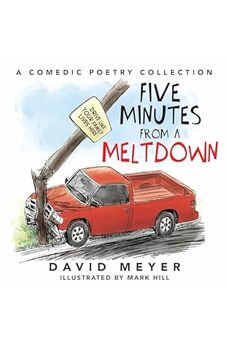



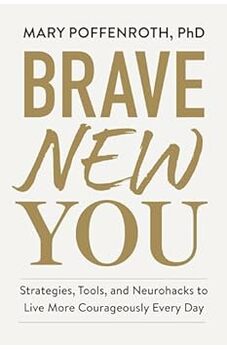



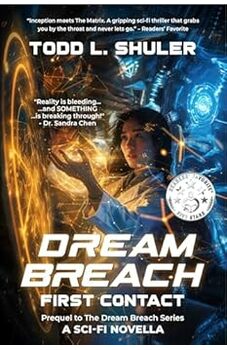


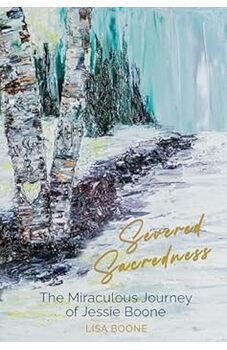

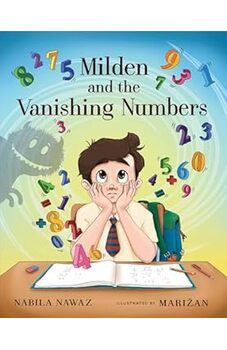


 This author participates in the Readers' Favorite Free Book Program, which is open to all readers and is completely free. The author will provide you with a free copy of their book in exchange for an honest review. You and the author will discuss what sites you will post your review to and what kind of copy of the book you would like to receive (eBook, PDF, Word, paperback, etc.). To begin, click the purple email icon to send this author a private email.
This author participates in the Readers' Favorite Free Book Program, which is open to all readers and is completely free. The author will provide you with a free copy of their book in exchange for an honest review. You and the author will discuss what sites you will post your review to and what kind of copy of the book you would like to receive (eBook, PDF, Word, paperback, etc.). To begin, click the purple email icon to send this author a private email.
![]() This author participates in the Readers' Favorite Book Review Exchange Program, which is open to all authors and is completely free. Simply put, you agree to provide an honest review an author's book in exchange for the author doing the same for you. What sites your reviews are posted on (B&N, Amazon, etc.) and whether you send digital (eBook, PDF, Word, etc.) or hard copies of your books to each other for review is up to you. To begin, click the purple email icon to send this author a private email, and be sure to describe your book or include a link to your Readers' Favorite review page or Amazon page.
This author participates in the Readers' Favorite Book Review Exchange Program, which is open to all authors and is completely free. Simply put, you agree to provide an honest review an author's book in exchange for the author doing the same for you. What sites your reviews are posted on (B&N, Amazon, etc.) and whether you send digital (eBook, PDF, Word, etc.) or hard copies of your books to each other for review is up to you. To begin, click the purple email icon to send this author a private email, and be sure to describe your book or include a link to your Readers' Favorite review page or Amazon page.

This British author has always lived by the sea.
She tends to write about the edges of things so if you inhabit the fringes you may find something to like. Her writing focuses on marginalised voices and those who are lost and searching for a place.
Music plays a substantial part in inspiring her stories.
Reviewed by Lisa McCombs for Readers' Favorite
When Matthew finds a tiny girl under the old truck in the yard, he questions her in hopes of discovering why she was there and from whence she came. Where were her parents? How did she get to this location? Feeling reasonably confident that he could be of help, Matthew does his best to offer comfort. But Rachel eludes his charitable acts and escapes from the persistent questioning. Any questions he had were answered with evasive replies.
Instinct and Tinker told her that he was not her destiny, so the girl continues to travel until discovered by another man. David takes her under his wing and commits to staying with her until his return to work the following week. The girl awakens something in him; a desire to re-examine his own life. The girl, now known as Sarah, pushes him to look closely at the sins of his past and hope for cleansing of those old wounds. When she feels that she has done all that she can do for David, Sarah once again disappears, leaving David to look for her in a dark and seedy side of town.
Rebecca Gransden's "anemogram." is a strange tale of mysterious events unlike any novel I have ever read. Gransden’s use of vivid imagery and plot twists take the reader on a vague journey that leaves unanswered questions that mirror the story itself. I can honestly say that the conclusion is still a mystery to this reviewer, but one that offers some sense of satisfaction in what can only be described as an undiscovered genre of fiction. Regardless of the category, I know that the plot will haunt me for days.
This little book kicked my ass.
I finished reading it yesterday. My thoughts were in chaos. I couldn't write a review. I'm not much better today. But I'll try. I shouldn't wait too long.
First, kudos to the author who, just when I thought I had her story figured out, she goes and picks it up, shakes it (and, by extension, me) viciously, then sends it down a path I never expected. And now that I think about it, there were hints along the way that this would happen. There were details that were creepy, and increasingly so. But I dismissed all as the product of a dark mind (mine).
The plot in one line: A mysterious little girl appears in David's life and quietly turns his world upside down.
That story, however, is secondary to its mood. And to be honest, it was difficult for me to get into the mood at first. The writing is rich; of the sort I haven't read since university. Sometimes it felt like I wasn't reading a book so much as looking at a painting or listening to an early Aphex Twin album. Another comparison that kept coming to mind, since the plot involves a road trip, Terence Malick's Badlands (1973): prose as cinematography.
I've nothing against this sort of writing, but in my experience such comes at the expense of other aspects of fiction. Happily, as more dialogue and characters appeared, this turned out not to be the case. Kudos again to the author for creating believable male characters. They're neither filthy beasts nor the Rich and the Ripped type I see on the covers of female porn novels appearing with hilarious consistency on my Goodreads feed. The dudes of anemogram., thankfully, are normal.
Initially, I was also uncomfortable with the little girl (whose name changes with each new man she latches onto). But that's only because I have a precocious relation who, when she was this girl's age, also talked and acted more like an adult; to the point that you had to actively remind yourself that Jesus, she's just a kid. Watch what you say.
Slowly, softly, anemogram. seems to become more normal, with regular interesting conversation and goings-on. I even foresaw a conventional conclusion. Forget the little part of me still uncomfortable with the fact that this grown man is spending an awful lot of time with a parent-less girl. Also, dismiss fully Tinker, the little girl's imaginary friend, who tells her stories that grow increasingly weird. And just gloss over those details that seem to make you wince, like the little girl's obsession with picking at her scab or burying a desiccated frog - cute little images I can't get out of my nightmares. Can't you see all that's just window dressing?
Ah, but then the plot turns, and it's full-on disturbing thereafter. Almost horror movie like, in fact. Then, suddenly, there's the end and you're left feeling like you've been pushed out of a moving car.....
I really don't know what I just read. But I do know it's deep. It's original. It's shocking.
It's been a pleasure of mine to read a number of Gransden's cryptic short stories. It's rare that a debut author comes out with a style this defined: stories that glance off of memories, of the surreal, and... that's actually about as good a description as I can come up with, for the simple reason that I find her work original, indescribable. Gransden is the only author whose stories I need to read to the end before I can make any sense of them. It's almost as if the true reading of her stories is in remembering them. That's because her stories are as much about what isn't happening as what is. With language, she hypnotises and seduces, but never gives too much away, asking that we bring our curiosity and eye for detail.
Her debut novel(la?) anemogram is no different. What does the title mean? I was told it was chosen at random. But I think the peripatetic title found its story. It is the record of the wending path of a young elfin girl that catches upon a stranger with the chance and grace of a fly stitch. Their journey together is as apparently meandering- and yet, upon further examination, as predestined- as the movement of the wind. But hey: get your own meaning. This story isn't about my projection; it's about yours.
If I was forced to compare, I'd go for Carver, Hemingway, or Ballard. But I don't know that I enjoy those guys as much.
You should read this.
I wanted to read this book because people I knew had praised it highly. It took me three attempts. The opening paragraph is willfully obscure. The title was, the author says, chosen at random. (For what it’s worth, an anemogram is graphic record of wind speed.) The first few pages sometimes seem overwritten. Those who read this review, and then read this book, will think at first that I’m mad to give it five stars. I’m not.
Rebecca Gransden’s anemogram. (sic) opens in an abandoned yard in the woods. It’s late summer, and a girl of six or seven has been sleeping rough. We follow her as she wakes and moves through the forest, and finds a hut, a sort of site office. She breaks in, and is eventually caught by a young man. She tells him her name is Rachel, and that she is alone because of an accident, and he takes her in search of her parents, who he thinks must be injured. She slips away from him and spends the night in the woods.
But it isn’t long before she looks for food in another site office, where she is taken in hand by a slightly older man, David. This time she says her name is Sarah. We learn that his estranged wife has gone abroad with their children. He is alone and decides to keep the girl with him and pretend that the girl is his niece. But he knows that he may be suspected of molesting the child. For the next few days they travel together as David looks for somewhere they can be together without exciting this suspicion. It is a search that leads to tragedy.
Who, really, is the girl, and where has she come from? Gransden’s in no hurry to answer this, and you eventually realize that she might not even do so. To find out if she does, one must read the book. But in any case, by the time I was halfway through, I’d decided it didn’t matter. What did, was David and Sarah’s strange journey through the physical and psychic landscape of modern England.
It’s this journey that raises this book so far above the ordinary. Gransden is a visual, almost tactile, writer, and has a wonderful ability to conjure up a time and place. Thus Sarah spends a night in the woods early in the book; the twigs, leaves, damp earth and gnarled bark are so real that you can smell the forest. She and David visit a hilltop on the coast, and the light on the sea is as real as the flakes of pastry from their picnic that are blown about in the wind. When it comes to the human environment, Gransden is even better; the tatty inside of a site office, motorway service stations, a run-down farm building, an antiseptic and regimented care home where they visit David’s mother. The people, too, feel real; a casual encounter with a fast-food worker or a youth in the park or a man in a hard hat – they’re all right there in your head.
Whether Sarah herself is real, or a ghost or a runaway or what, is secondary; in fact, I’m not sure Gransden greatly cares. It just isn’t the point. What the point of this book really is, only Gransden knows. But I think I can guess. The building sites and supermarkets and fast-food restaurants in this book all convey an atmosphere of sterility and alienation through which David moves as if in a dream. For him, Sarah represents connection and meaning, and a chance to revisit the excitement of childhood. anemogram. seems, at first, infuriating, but in the end it is an extraordinary and evocative meditation on what it is to be English in the 21st century. We yearn to be in the woods with Sarah, but our world is the supermarket checkout, cardboard fries, motorways, and the smell of petrol in the rain.
I'm confident that the writer will end up with a major, prestigious literary award one fine day. That is to say that my feeling whilst reading this book was that I encountered greatness.
We love different books for different reasons and the main reason for loving this one is the wealth of subtext, the profound unspoken, what lies underneath. The author is to be complimented on so many aspects but I need to point out the independent spirit of this work. Tarkovsky once replied to the complain about the bleakness of his narrative text and solutions: 'I'm not responsible for the happiness of my audience'. Likewise, in the 'anemogram' the author lets the narrative breathe and takes it to the direction she wishes in artistic honesty and bravery, without external calculations. (I have had my share of exposure to authors who construct their books based on recipes for popularity feeding their readers what 'they want' or expect to keep them sweet and coming back. Only that we can't talk about books and readers anymore but -disdainfully yours!- about products and happy customers).
The story starts with a mysterious seven year old girl wandering in the woods. She is homeless, alone, responsible for her own survival stealing food when she can, letting herself near people she chooses, only to run away from them, because they are not 'suitable'. Her name is either Rachel or Sarah. Her 'imaginary friend' Tinker is the one she discusses her decisions with and at times the one who dictates to her. He is also the one to tell her a good bedtime story. His stories are lyrical, melancholic or gory. And then she meets David, a divorced father of two. He takes time off work and off they are on their journey.
The descriptions are of immense beauty and precision. From the first pages following Sarah's steps the depictions of the nature around her brings to mind somewhat of a bucolic idyll or a symphonic poem leading very subtly into naturalism. The author's mastery of creating images and bringing them to life is sensual and mesmerising. The dialogues and character interactions are very convincing and the characters themselves despite their veiled intentions become unquestionably plausible.
A truly accomplished work, memorable for all the right reasons, mature and whole which I not only strongly recommend but I'd love to see taking the place it deserves.
It took me a number of attempts to get into the writing style of this book. This is nothing to do with the author's writing ability (as Gransden has clearly honed her craft before publishing anything before now) and everything to do with the fact that I don't read outside of my comfort zone often enough. Call me an ignorant arse (and I really am), but I've seen the genre magical realism banded around for many years and have ignored it because it doesn't sound like my cup of tea at all. I don't know if this book is what's considered magical realism, but it was certainly magical. If felt 'of this world' but 'not of this world' all at the same time. In fact the references to McDonald's and a mobile phone were like a kick to balls because I could've sworn those things didn't exist in the universe of the book.
And I would like to mention that Gransden can probably write about a train journey from Bognor Regis to some other hilarious-sounding village and make every single sentence entirely gripping. At times there were glimmers of genius in the writing and some of the descriptions of the natural world could've been lifted straight out of a Wordsworth poem.
There is a minor criticism, however, and it echoes that which can be found in other reviews of this book. In a nutshell I felt like I needed more of a conclusion. I'm not one of these people who needs everything explaining to them or wants a neat little ending; however, because this story was so character driven, I felt like I needed just a bit more of a wrap up come the end. I may have to read this again in the future because I feel like I may have missed something with the relationship between the two main characters - I only have myself to blame if this is the case.
Either way this doesn't detract from the overall loveliness of this story. I really enjoyed this very unique tale of an unlikely relationship and I look forward to future stories by this new talent.
(EDIT: in order to be fair and consistent I have remarked this as 5 star on the basis that it is one of a tiny stack of books I intend to reread owed to the author's skill of balancing narrative and mystery]
I was so mad at this book for ending! Seriously. I have so many questions! Tinker??? C'mon, I need to know more! And the murdering? Or maybe cleansing IS a better word . . . I will definitely be re-reading this in the future, searching for clues. Because that's what Gransden gives you-bits and pieces to figure out, stew on, wonder about, all while blazing through her deliciously surreal masterpiece. Can't wait for more from this author!
The world seen through the eyes of a child often looks like a fantasy world, which shows how far we have come as adults when the magical and mysterious become strange and confusing. We demand logic and linear progression. There is linear progression in anemogram - protagonists Sarah and David keep asking each other 'where to next' - but the linearity is unsettled by 7 yr. old Sarah's projections onto it through her conversations with Tinker.
A cursory consideration of Tinker would describe him/her as an imaginary friend, but as we read more of Sarah and her perception of the world around her, she might be interpreting the real as the imaginary, not vice versa. A world of dessicated frogs and stone ducks and chips and woodland...
Rebecca Gransden writes about the edge, but her work also inverts; the real becoming the imaginary, the child manipulating the adult, the threat dressed in white, beauty within the urban decay and construction. Like the border on a map, anemogram twists and writhes, running along the transition between two very different worlds: those of Sarah and David, and those of reader and character.
anemogram is an invitation to inhabit that mystery world of the child, the overlap between the imagination and reality. But where conventional fairy tales build houses out of sweets and everyone lives happily ever after, Sarah's world buries its dead and gets a soaking when it rains. To live happily ever after you have to walk through the deluge first.
A man going through a mid-life crisis - David - takes a homeless waif under his wing, bunking work to look out for her for a while. She, seemingly innocent, knows how to manipulate people to survive. He takes her at face value and sees an idealised reflection of his own estranged daughter in her, and it is this version of the girl that we meet at the beginning of the book.
In this idealised image, the girl is almost an incarnation of nature itself, inhabiting the woods and verges, more Daughter Nature than Mother Nature. Young, yet with the clear-eyed and unadulterated wisdom of children. With the diminished physical sphere of interest of those her age, she appreciates the tiniest things and, through her, he begins to re-learn to connect with his surroundings and to discover a long-forgotten, younger side of himself. As with any ideal, however, reality can never live up to its promise ...
The style of the book is varied - largely lyrical but interspersed with no-frills dialogue and gritty descriptions of degraded semi-urban landscapes. Some of the most memorable passages are the dreamy, meandering asides when Tinker, the girl's imaginary companion, tells her bedtime stories with a pleasing absence of logic in them.
The portrayal of a man in middle-age, foolhardily trying to wind back the clock, poses a dilemma for the Anemogram reader. His efforts with the girl are harmless, patient, kind, even endearing. But why? Are they for her, or for himself? And does it really matter, if they are well-intentioned? His reactions to some of the events in the book are Jesus-esque in their degree of forgiveness, and this made him slightly less plausible than he would have been otherwise. To this end, it would have been interesting to know more of his background and what, if anything, he was attempting to redeem himself from, other than the breakdown of his family. It is, though, a novel driven with purpose by the solid characters of the girl and David and leaves you feeling that you know them - a nice way to finish time spent with any book.
This book defies categories, like many original books do. Great characters, melty action. Sorry --that's the adjective that sprung to mind. Definitely a good read.
In parts it has the overhanging worry of suspense, even horror--but it builds that tension to a naturally felt crescendo. In other words, it feels like something that might happen to real people, not some hyper Hollywood script. I think what I like best about it is how randomly chosen the characters seem, truly like persons who just walked into each other's paths, stayed a while, and then haunted each other forever. It's a really cool effect, and never heavy handed. All the emotional points are running silently in the background, like a grotesque hiding in the corner of the mind's eye.
An amazing first novel that deserves attention.
Anemogram – Engaging, Eerie Mystery
All is mysterious in anemogram by Rebecca Gransden: the obscure/cryptic title (technically a graphical display of wind speed), the ghostlike protagonist, and the poetic writing and evolving story. Gransden employs Mystery to drag you into the protagonist’s journey. “She” is a roaming, young girl. Her history and motivations are unclear. Is she a human orphan? A sprite or spirit guide? Angel or devil? The wind itself? Whatever she is, it seems she is out to harvest stories from abject people, but it is equally possible she has chosen us the “reader” to engage.
It is a dark weird tale. The characterization is compelling; strangely, most of the revealing conversations occur during eating. There is a constant tension between innocence and impending darkness which is played expertly, and intellectual readers may consider this as a homage to the classic The Heavenly Christmas Tree by Fyodor Dostoyevsky (1876, available online via the Gutenburg project). Keeping this from a 5-star rating, is the denouement. With all the mystery presented, I did not expect to have all things explained, but I did expect more. The climax brings the right characters to the right place… and I really craved about one more chapter’s worth of the journey. This is an ambitious, well done debut novel. I look forward to more from Rebecca Gransden, especially if there is a follow up to anemogram. This is an excellent tale that will appeal to several genre readers: fantasy, mystery, thrillers.
Excerpt:
“…she turned and headed across open wasteland, into the domain of the sun and its cherishing death. She bobbed up and down and held out her white dress, spinning and drawing in the warm air. Her legs were cherubim podgy and she moved like an electrified hamster. The wasteland contoured down a textured valley which in turn vaulted into the distance and away. She stood in its open magnificence, its blanched earth under the blue-white sky of God. Everything in the distance; she would play unseen. She left her giggles behind her as she took off running. The ground flattened like an ancient seabed and she took her little body over it. She forgot her feet as she chased her own arms down. The surrounding landscape stayed static and true as she fed her hunger for abandonment…”
anemogram. was something of a mystery to me as I read it. The setting seemed surreal and almost apocalyptic as I moved forward, and the characters seemed detached from the real world. For the first bit I didn't quite know what to think, but eventually, it all started coming together.
Once the story gets moving, anemogram. starts to shine. Rebecca's true knack at writing is in vivid descriptions, of both physical things and emotional states.
I'm not quite sure what genre this book would fall in to, but it was an enjoyable read throughout. I'd recommend it to fans of (urban?) fantasy books and those that like their books to put them into a unique environment!
***I received a free copy of the book in exchange for an honest review***
Anemogram was a unique story about a strange little girl who befriends a kind of lost soul. It had me gripped and questioning within the first few chapters. Gransden's ability to setup a world, to draw you in was fantastic. The book really gets going about half-way and by then, I was flying through the chapters, compelled to read on and find out what this Sarah was up to. What an interesting and strange character she was and her relationship with David was impressively told with witty and often humorous dialogue. I have to admit, I was left slightly confused at the end and I look forward to some of the authors comments regarding it. Apart from that one slight niggle, I would certainly recommend it and as a story, it was told brilliantly and kept me engaged throughout.
It's a thriller. It's an expose on lost innocence. It's also a finely written piece that brings a level of the extraordinary to the ordinariness of a simple life, depending on how to define 'simple'.
In richly detailed "Anemogram" by british author Rebecca Gransden demonstrates a natural knack for presenting the story of a seemingly lost girl holding a powerful secret. In the novel, a young girl literally emerges out of the woods and enters a world of convention and modern society. She meets David, a man with his own set of personal demons, and they begin a relationship that is, well, if you read this book, you'll quickly find out.
It's the blossoming relationship that is a roller coaster ride for the reader. Gransden subverts many popular ideologies in the process, showcasing her talent at prose, as well as creating situations that though familiar, have an edge to them.
It's a bit Lynchian at times. There are many themes lurking beneath the surface of a standard fictional novel, with the reader being able to identify them depending on their own personal experiences in life. After the final word is read, the lingering feelings continue with the reader, creating an experience of ambiguity and interest.
Like this review? Read more like it at www.readingotherpeople.com!
Gransden is a talented writer with the gift of insight into the darker reaches of the human psyche. I struggle to class anemogram as magical realism, simply because it seems to me to be ultra-realistic with regard to the terrain of the mind. (It could be, though, that this says more about my own experiences than the novel.) Ultimately, the novel is about boundaries and edges, and ironically exists on the fringes of multiple genres itself, defying definition.
anemogram explores some classic dichotomies (such as insider–outsider, child–adult, human–nature, safety–danger) but does so in a novel way, drawing the reader in to explore the boundaries of those dichotomies, to find something with which to anchor herself in Gransden’s fictional world. However, the reader’s understanding of those boundaries is ultimately frayed and then shredded to pieces as the novel develops. While our social minds strive to grasp at these shreds, Gransden’s prose takes us deeper and deeper into a psychological wilderness, teasing us with the recognition that our boundaries are merely arbitrary.
Much of the beginning chapters read as prose¬–poetry, which is no bad thing in my book. The trouble I have with the early chapters is that the language seems to describe people, events, places, scenery, weather, but leaves them suspended in mid-air without much apparent connection. It isn’t until the plotline develops well into the novel that some of these elements begin to fall into place (although, not all), and the description then seems to compliment the story--enhancing it--rather than existing as an entity unto itself.
As with many contemporary novels, I feel anemogram could have benefitted from more in-depth editing. In addition to the beginning chapters, I find the dialog in the Mungo scenes stilted and unnatural. Elements of the story seem out of place and disconnected, even when they are about connection (I am thinking here of the visit to the nursing home).
Of course, all works have their flaws. But significantly, I find myself still digesting this novel, days after having finished it—which suggests to me there is much here worthy of recommending.
Gransden's writing creates a wonderfully lush sense of atmosphere, where the pull of a place seeps just under your skin, and the sense of danger and uncertainty scratch continually at your emotional door. We humans have a way of connecting through our stories and the young protagonist (Sarah) in this book seeks out the tales of strangers as a matter of survival. Despite her seeming innocence, something larger hides behind Sarah's tiny facade, a darkness barely restrained.
I hope this debut novel marks a beautiful start to more of Gransden's writing made public!
‘Anemogram’ is a surreal and unsettling novel about lost innocence. The heroine is a young girl who makes her way from experience to experience by virtue of her wits and imagination. The various men that she comes across try to help her according to their means, and although she fits in best with those of them that in some way have not grown up, or have not overcome some trauma in their own histories, she inevitably runs away from each of them in turn.
On the surface the story follows a straightforward sequence of events and characters, but there seems to be something deeper between every line in this novel, some kind of elemental key to the mystery that might explain the girl and her prescient actions. Moments of magic realism tantalize the reader, suggesting a world that exists to a child but that is lost between the cracks of adult understanding.
Disarmingly simple in some respects, but enigmatic and uncompromising in others, ‘Anemogram’ is in many ways about a state of childhood that is neither innocent nor naïve - a state that exists outside of the normal constraints of social order. There is a feral aspect to the girl’s behaviour that is more suited to the animal kingdom than the human sphere. The nature of the novel itself also seems to reflect this wild state - self-consistent in its own logic but contrary to our expectations.
Blending prosaic detail and a strange kind of sehnsucht, ‘Anemogram’ tells a circular story that isn’t circular, an allegorical story that isn’t an allegory. For me, the author is at her most interesting when she twists around the boundaries of convention, playing with the preconceptions that her readers might have and unnerving them just when they might think they are getting to grips with the way things are. The result is definitely a novel to think about, long after reading.
anemograph: (ə·nem′ə·graf, -gräf) noun Meteorol. An instrument that makes an automatic record of the velocity, force, or direction of the wind.
anemogram: An anemographic record
From start to finish Gransden’s work had a haunting feel to it. The description itself required to ask her before I agreed to review the book if I should be concerned… if there were any Lolita elements to the story. I was not emotionally in a place to handle anything involving molestation or inappropriate relationships.
No, the author assured me. No, I assure you.
Still, page by page, there’s the constant wonder if you’re about to get hoodwinked by the story. Gransden’s prose is songlike and her subject matter is mysterious and disconcerting, without ever crossing a line. Or did it? I’m still not sure.
Just as a ghost-like girl weaves in and out of the woods, in and out of society, almost like a dream, the story weaves in and out of itself – chapter-less – smoothly, but with the momentum of a sharp breeze at your back on a day you know you should have worn a sweater.
Something of the story feels a little Elizabeth George to me, and a little bit Chuck Palahniuk. (Two authors with nothing in common, except somehow they hung out in the recesses of my brain while I read Gransden’s work.) I wonder what she thinks of them.
I write this review now because the author has been waiting for it for sometime. I was sent this book from her in exchange for an honest review, but I think I’d have to sleep on it a bit before I truly know what I think of it. It deserves pondering, and discussion. It deserves a re-read in varying moods to see if that changes my own perception of things. How much of what I feel now is Gransden’s writing skill and the mood she wanted to portray and how much is because of my own current mood?
Anemogram would make for an excellent book club selection and I’d recommend it to a group who typically chooses mysteries, although I’m hesitant to place it in the category.
Y’know how with some books, you just keep reading the next bit, and before you know it, what should’ve been thirty minutes’ reading has turned into several hours. This was one of those books. I’ve just raced through it in two sittings.
Sure, there are plenty of questions to be had from the offset, so you want to keep reading to find the answers, but this book is also the exact opposite of using any such devices as cliffhangers. It doesn’t even use a chapter format to enhance the reader’s curiosity. Sure, you’ll keep reading to try to discover more, but above any plot situations, it’s simply Rebecca Gransden’s writing style that will pull you in. It’s actually hard to believe that this is a debut, because the author writes with an expert descriptive panache that will warm you inside and bring a small smile to the corner of your lip, yet you won’t know why you’re smiling. Then you’ll realise that you’re smiling because Gransden’s words are simply: that good! This is up there with those few Indie books I consider to be worthy of mass attention.
Right from the word go, you’re just there. In the story. There’s no lead in. No explanation. You’re just there. When I realised I was already a third of the way through in no time at all, if someone had have asked me, “So, what’s happened?”, the answer would have been, “Not much.” This is a good thing. A very good thing. Not much happens at all, and yet that’s also completely untrue…so much happens that I’m still left pondering on much of it.
The setting alone is brilliantly chosen. The lost little girl protagonist of anemogram survives by living off the land, but in modern England, this means: off the edge of the land. Cities and towns are avoided. Instead, we wander through motorways, construction sites, car parks, drive-thru McDonalds, old shacks and the middle of nowhere. The urban sprawl that has invaded the countryside more and more and continues to do so, plays an important part in this book; just by it being the location.
Innocence. Kindness. Cruelty. Freedom. Childhood. Nature. Human nature. Timelessness. Change. Life. Death. These are just a few words that spring to mind when thinking about anemogram.
There are also a few short stories throughout , told by someone called Tinker; who plays a pivotal, but background, role in this book. These short stories are especially wonderful, and I particularly liked the one about humans and birds living below in the soft mud of the Earth, leaving the trees to claim the topsoil land as its own.
Any negative criticism then? Nope.
Hurry up with the next book please Rebecca.
